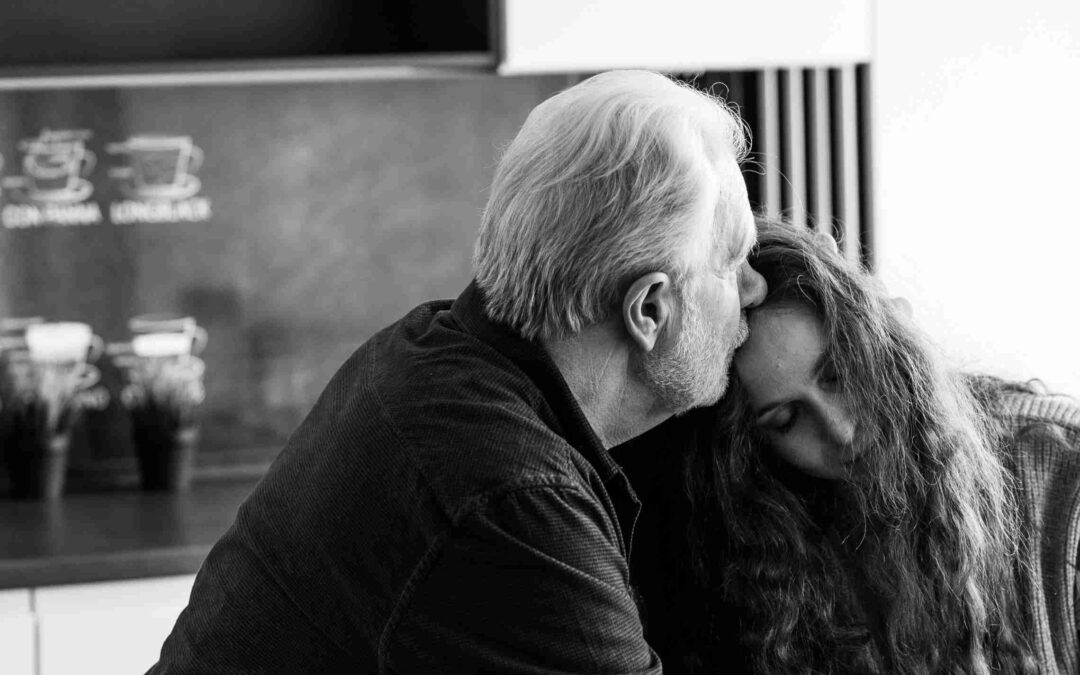No matter how old you are, it remains one of the most difficult things to cope with when a loved one dies. Losing a loved one is one of life’s most challenging experiences, and the process of adapting to life after loss can be overwhelming. As adult children, we grapple with various emotions and face a new reality. However, it’s important to remember that healing and adaptation are possible. This blog post will explore practical strategies and insights to help adult children learn to adapt after loss.

4 Strategies to Learn to Adapt After Loss:
- Acknowledge and Embrace Grief: Grief is a natural response to loss, and it’s crucial to acknowledge and embrace it. Allow yourself to experience various emotions, from sadness and anger to confusion and relief. Remember, there is no right or wrong way to grieve. Seek support from family, friends, or a grief support group that can provide understanding and comfort during this challenging time.
- Practice Self-Care: Taking care of your physical, emotional, and mental well-being is essential as you learn to adapt after loss. Prioritize self-care activities that bring you comfort and peace, such as engaging in regular exercise, practicing mindfulness or meditation, journaling your thoughts and feelings, or seeking professional therapy if needed. Nourish your body with healthy meals, ensure adequate rest, and give yourself permission to take breaks when necessary.
- Seek Support Networks: Building a support network is crucial during adaptation. Connect with other adult children who have experienced similar losses and can offer empathy and understanding. Reach out to local support groups or online communities where you can share your journey, gain insights, and find solace. Additionally, consider seeking guidance from a grief counselor or therapist specializing in helping individuals navigate the challenges of grief and adaptation.
- Embrace Change and Create New Routines: Loss often disrupts our established routines and makes us adrift. Embrace the opportunity for growth by embracing change and creating new routines. Explore new hobbies, take on meaningful projects, or volunteer in your community. By engaging in activities that bring you joy and fulfillment, you can gradually find a sense of purpose and rebuild a fulfilling life.

Our Director of Engagement, Nicole Clifton, shares some wisdom around grief: “It has been said that grief is the price of love. So when we are consumed by the loss of a loved one, it means that we have loved that deeply and that it mattered that much. While our relationship with that person was such a pivotal part of who we are because they helped shape the person that we became, it is not the only part of who we are. It can feel jarring and vulnerable to rediscover who we are without our partner, but it can also be a season to connect to things like curiosity, learning, and freedom. Both sadness and goodness can exist in this season of grief. We can honor the loneliness and still have hope for new connections with others in a way that brings us joy or peace.”
While it can feel that sadness takes over when we grieve, Nicole further explains why it’s vital to ‘accept’ grief, whether you are mourning the loss of an aging parent, or a senior loved one/partner.
“It’s so important that we don’t shy away from grief. It is a part of the human experience for us all. It’s vulnerable and messy; it doesn’t work on a linear timeline and sometimes shows up in inconvenient ways. We don’t need someone to take away our grief or distract us from pain; we need someone to sit with us in it. So validate what has been lost, and still communicate your love for your parent and how thankful you are to still be together. It doesn’t have to be a chasm that separates you; it can be an anchor that keeps you both tethered together.”

Learning to adapt after loss is a personal and transformative journey. It takes time, self-compassion, and a willingness to embrace change. Remember that healing is not about forgetting or moving on from the loss but rather about finding ways to integrate the experience into your life and create a new sense of meaning. By acknowledging grief, practicing self-care, seeking support networks, and embracing change, you can navigate this journey with resilience and find hope in the adaptation process.
At Options for Senior Living, we can offer advice, guidance and referrals for adult children dealing with the loss of an aging loved one. If you need advice, a trusted referral, or assistance with any senior resources, contact us directly by calling 602-845-1320 or email us at support@optionsfsl.com.


